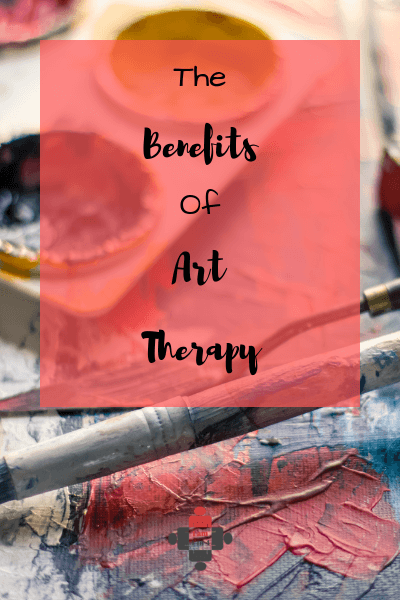Need a therapist to talk to? Here’s the pocket-sized guide you’ve been looking for. A trauma therapist is someone who helps people with mental health problems. They may assess and treat them. Trauma therapists work in hospitals or clinics. They help people who have been hurt. Some people get hurt from violence, accidents, wars, and natural disasters. In this article, we will explore what trauma therapist does and how they can help you heal from your past experiences.
Contents
- 1 What Is A Trauma?
- 1.1 Who Is A Trauma Therapist?
- 1.2 What Are The Techniques Do Trauma Therapists Use?
- 1.3 Relaxation Exercise
- 1.4 Eye movement desensitization reprocessing (EMDR)
- 1.5 What Should One Expect From A Trauma Therapist?
- 1.6 Good Qualities Of Trauma Therapist
- 1.7 How Trauma Affects The Brain?
- 1.8 What Are The Things To Consider While Looking For Trauma Therapist?
- 1.9 Some Traumatic Experiences For Which One Should See A Trauma Therapist
- 2 Conclusion
- 3 A Word From Mantra Care
What Is A Trauma?
Trauma is when you have a really bad experience. It can be anything, but most people think of an accident or a death. Sometimes it can be something that happened in your life that you don’t remember because there was too much going on at the time.
Who Is A Trauma Therapist?
A trauma therapist works with people who have experienced something that has caused them to be hurt. They help you process what happened and make sure it doesn’t affect your life anymore.
In other words, A trauma therapist is someone who helps people deal with the bad things that have happened to them. They help you understand what happened and how it’s affecting you now. They also teach you how to deal with any emotions that come up because of the trauma
What Are The Techniques Do Trauma Therapists Use?
Trauma therapists work with patients one-on-one or in groups, depending on the type of therapy they are doing.
There are some common techniques that are very helpful to treat trauma such as:
- Exposure therapy
- Art therapy
- Cognitive-behavioral therapy (CBT)
- Relaxation exercises
- Eye movement desensitization reprocessing (EMDR)
The main goal is for the patient to recognize what triggers their anxiety so they can avoid those situations if possible.
Exposure therapy
Exposure therapy is a method in which patients are exposed to the objects, places, and situations that make them anxious. In some cases, exposure therapy also involves imagining being in these anxiety-provoking situations.
- Exposure therapy is when you are in a relaxed state of mind. When you are scared, the thing that is making you scared becomes less scary. The relaxation response is the opposite of the fight-or-flight response, which patients experience when exposed to certain stimuli.
- When people are faced with situations that make them anxious, they experience physical reactions such as increased heart rate and sweating. As they remain in the situation, their anxiety level decreases because of a principle known as habituation. Habituation explains why people don’t panic when taking repeated test flights on an airplane.
- The first time you fly, you might be afraid. But the second and third times, you will still feel scared. And by the tenth time, you are bored and not even excited when you get off the plane.
- Habituation means that if you are exposed to something, again and again, the bad feelings will decrease in intensity and frequency.
- If someone sees a scene or walks into a hospital emergency room, they will have an initial panic attack. But if they do it over and over, their panic attacks will get smaller.
Art therapy
According to the research Art Therapy Association, art therapy is when you use art and creative expression to improve your mental health. It can be very helpful alone or as an adjunct to other forms of psychotherapy”.
- Art therapists are not simply painters or sculptors. They do not create art for the sake of creating it but use its creation as a tool to help people affected by mental health conditions.
- Art Therapy is using psychotherapy with art materials such as drawing or painting, etc. The art materials used can be something very simple like crayons and paper or just about anything that will allow you to express your feelings and thoughts.
- The use of materials such as clay, paints, pastels, and so on can be used to help you communicate your emotions and the related issues with the art therapists. It helps in developing interpersonal skills which is another positive aspect of Art Therapy. People in the hospital use art when they are talking to their therapist. They like when the therapist listens and encourages them.
- Art Therapy can be used as an individual or as a group therapy depending on the requirements of the patient; it also calls for regular sessions. Art therapists usually suggest at least 3 times a week.
Cognitive-behavioral therapy (CBT)
CBT is a therapeutic approach that focuses on how our thoughts, beliefs, and attitudes affect the way we behave.
- CBT emphasizes the important role that thinking plays in our feelings and actions. The process of cognitive-behavioral therapy (CBT) involves learning to identify, understand and change these factors which lead us toward destructive or negative behavior.
- A therapist using CBT training will help you to better understand the thoughts behind your feelings and actions. A large part of the cognitive-behavioral theory is that our emotions are connected to how we act.
- This leads to more upsetting emotions, which creates a loop. Cognitive-behavioral therapy (CBT) involves learning to examine these factors and making changes to break the negative cycle.
- Cognitive-behavioral therapists help their clients explore the connection between thoughts, beliefs, emotions, and behavior.
- The goal of cognitive behavioral therapy is to change the patterns that cause people to feel negative.
- Patterns can be things like when people are mean or not nice, or when they make mistakes. It may be hard to believe that people can control how they feel. But with CBT, people can control their thoughts and behaviors.
Relaxation Exercise
The field of human development has rapidly expanded in the last few decades. We now know so much more about how to help people overcome obstacles and achieve their goals than we once did, thanks to science. In particular, neuroplasticity research is extremely promising for trauma therapy.
- One practitioner that uses this type of neuroscience-based approach with patients is clinical hypnotist Tom Nicoli. He’s the author of many books about using hypnosis to stop smoking, lose weight, look younger, and more.
- He also works with individuals who have experienced trauma, whether it be sexual abuse, physical assault, or other incidents that left emotional scars.
Eye movement desensitization reprocessing (EMDR)
Eye movement desensitization reprocessing (EMDR) is a type of therapy that helps people who have experienced bad things in their past. It is very effective.
- EMDR therapy helps people address the root cause of their trauma rather than just treating the symptoms, as many other forms of therapy do. This type of therapy is very helpful to treat and heal a variety of psychological conditions.
- EMDR is one of the most helpful psychotherapies for the treatment of trauma. EMDR therapy is not only for one specific type of psychological disturbance.
- It helps to relieve several types of emotional distress including post-traumatic stress disorder (PTSD) as well as depression, anxiety, grief, phobias, and other disturbing memories that are the byproduct of disturbing life experiences. EMDR therapy is especially helpful for reprogramming the brain to stop responding to triggers that bring back negative memories and emotions.
What Should One Expect From A Trauma Therapist?
There are a few things to expect from your trauma therapists such as:
- A trauma therapist is someone who helps people deal with the aftermath of a traumatic event. This type of therapist can help you with the feelings and emotions that come from trauma. Trauma therapists use a variety of therapeutic approaches, so it’s important to find one that feels like a good fit for you.
- If you are thinking about going to therapy, make sure the therapist has experience with people who have the same issue as you. It’s also important to make sure that they are comfortable working with survivors of sexual abuse, physical assault, or other types of traumatic events.
- Trauma therapists are specially qualified to help people deal with the aftermath of a traumatic event. They use different therapeutic approaches, so it’s important to find one that feels like a good fit for you.
- Cognitive-behavioral therapists help their clients explore the connection between thoughts, beliefs, emotions, and behaviors in order to change patterns that cause them to feel negative about themselves or life situations.
- Neuroplasticity research is extremely promising for trauma therapy as well since it helps people overcome obstacles and achieve their goals based on science-based findings rather than just treating symptoms.
Good Qualities Of Trauma Therapist
There are many good qualities of trauma therapy, such as:
- One thing that counseling can do is help you figure out the connection between your thoughts, emotions, and behavior. You can change patterns of things you do or think about so that you feel better about yourself and your life. This approach is based on cognitive-behavioral theories.
- Another good quality of trauma therapy is that it helps individuals address the root cause of their trauma rather than just treating the symptoms. EMDR therapy is very effective for this purpose. This therapy is for treating people who have been through trauma. It has also been very helpful to help people with other conditions like depression or anxiety disorders.
- Trauma therapists also have experience working with people who have experienced different types of traumatic events.
- The know-how to address the specific needs of people who have experienced sexual abuse, physical assault, or other types of traumatic events.
How Trauma Affects The Brain?
Trauma results in a variety of psychological disturbances. Some common reactions to trauma are:
- Guilt
- Self-blame
- Feelings of personal inadequacy and worthlessness
- Numbness or difficulty connecting emotionally with others (and especially children)
- Anger issues include excessive irritability
- Quick reactivity as well as emotional withdrawal from friends or family members
These patterns can lead to suicide attempts if the individual does not receive treatment for their condition.
Trauma therapists use several approaches to help people overcome obstacles they may face due to experiencing traumatic events like sexual abuse, physical assault, car accidents/injuries, etc.
What Are The Things To Consider While Looking For Trauma Therapist?
When looking for a trauma therapist, there are several things to consider.
- First of all, make sure the person is experienced with your specific issue and has worked with other people who have had similar experiences as you.
- It’s also important that the therapist feels like a good fit for you personally because this relationship is very important in doing effective work together.
- Trauma survivors can feel more comfortable talking about their experience and overcoming obstacles when they find someone who understands them well enough to help them move on from there so they can live fulfilling lives today.
Some Traumatic Experiences For Which One Should See A Trauma Therapist
There are many events that can lead to mental health disorders. They include:
- War, violence, and other types of abuse such as sexual or physical assault
- Car accidents/injuries resulting in PTSD symptoms like flashbacks or nightmares about the event long after it has occurred
- Natural disasters lead to major stress reactions due to sudden changes in the environment and the loss of loved ones from floods, earthquakes, fires, etc.
- These traumatic experiences are linked with conditions like depression (especially if someone loses a child).
- Anxiety disorders (especially for those who lose family members they were very close with).
- Post-traumatic stress disorder (PTSD) includes symptoms like flashbacks or nightmares about the event long after it has occurred, and more.
Conclusion
As trauma therapists, they work to help people heal from traumatic events and move on with their lives. They use a variety of techniques including cognitive-behavioral therapy (CBT), psychodynamic therapy, mindfulness-based stress reduction, interpersonal neurobiology, or EMDR for quick relief. These therapies are helpful in reducing the symptoms that may come along with PTSD such as anxiety and depression. In addition to these treatments, victims will also receive education about how to manage reactions during flashbacks and nightmares which can help them find peace again. If you want more information about this profession or need someone who can provide counseling services at home after an accident or injury contact us today.
A Word From Mantra Care
Your mental health — your psychological, emotional, and social well-being — has an impact on every aspect of your life. Positive mental health essentially allows you to effectively deal with life’s everyday challenges.
At Mantra Care, we have a team of therapists who provide affordable online therapy to assist you with issues such as depression, anxiety, stress, relationship, OCD, LGBTQ, and PTSD. You can take our mental health test. You can also book a free therapy or download our free Android or iOS app.










